SUMMARY
This is AI generated summarization, which may have errors. For context, always refer to the full article.
The National Telecommunications Commission (NTC) has issued show cause orders (SCOs) against 47 internet service providers (ISPs) for their failure to block child pornography.
Republic Act 9775 or the Anti-Child Pornography Act of 2009 requires ISPs to inform the Philippine National Police (PNP) and the National Bureau of Investigation (NBI) within 7 days of obtaining facts or circumstances regarding any form of child pornography engagement on their servers.
Among the companies that received SCOs were telco giants Philippine Long Distance Telephone Inc. (PLDT), Smart Communications Inc., Globe Telecom, Digitel Mobile Philippines Inc., Bayan Telecommunications, Innove Communications, Sky Cable Corporation Inc., Converge ICT Solutions Inc., and Philippine Telegraph & Telephone Corporation.
The Department of Justice (DOJ) on Monday, February 8, said President Rodrigo Duterte approved the imposition of sanctions on the ISPs for their failure to comply. ISPs need to install a program or other software to block access to or the transmittal of child pornography.
Apart from informing authorities, ISPs are also compelled to preserve evidence for purposes of investigation and prosecution, and to furnish details of users involved in the child abuse.
The justice department noted that despite the law being 11 years old, the ISP companies continue to disregard their duties.
“Even with a court order to supply particulars of a user who has accessed child sexual exploitation material (under section 9) ISPs are unable to because they have not installed the necessary technology,” Justice Undersecretary Emmeline Aglipay-Villar said.
In October 2019, the Department of Social Welfare and Development raised the same concern about ISPs failing to comply.
‘Conflicting’ provisions in laws
In a position paper submitted to the DOJ in 2020, the Philippine Chamber of Telecom Operators (PCTO) committed to help the government curb online sexual exploitation in the country – especially where children are involved.
The PCTO is the umbrella organization of telecommunication entities and ISPs, including telco giants PLDT and Globe.
It said its members had been closely coordinating with the NTC, PNP, and NBI in blocking sites known to contain child sexual exploitation materials. However, in the telcos’ defense, the PCTO said there were clashes in the law which made it difficult for ISPs to perform their duties.
The organization claimed Section 9 of RA 9775 had conflicting provisions.
Section 9 requires ISPs to monitor the content passing through their servers for any form of child exploitation materials and report these to authorities. But the same section also says that “nothing in this section may be construed to require an ISP to engage in the monitoring of any user, subscriber or customer, of the content of any communication of such person.”
The PCTO claimed this effectively prevents ISPs from performing the duties imposed under Section 9.
The organization also pointed to the Data Privacy Act of 2012, which imposes strict privacy responsibilities on entities that collect or process personal information of customers. They said this also clashes with their duties under the child pornography law.
Globe has blocked 2,521 websites named by the NTC and law enforcement agencies. The Ayala-owned telco invested in a software filtering system worth $2.7 million (P129.7 million) to support its “PlayItRight” campaign targeting illegal or pirated materials.
Role of tourism establishments
The fight against online sexual exploitation of children (OSEC) is not only the duty of the ISPs, the DOJ noted. Villar said the justice department also wants establishments in the tourism sector to take up a more active role in its prevention.
Under the Anti-Trafficking in Persons Act, tourism-oriented establishments – which include hotels, resorts, inns, motels, and other similar facilities – are also required to cooperate with law enforcers within a week of acquiring knowledge of child trafficking or exploitation in their premises.
The undersecretary said the Inter-Agency Council Against Trafficking would issue a uniform notice containing human trafficking hotlines. Establishments would be able to download this from the IACAT’s websites and post them in conspicuous areas.
The council also highlighted the importance of training employees to recognize signs of trafficking and coordinate with law enforcers. The IACAT also said a training curriculum would be available for download on its website.
OSEC prevails
The Philippines in recent years has topped lists of countries known to be involved in the child trafficking trade. This happens even as the Philippines retained its Tier 1 status with the US State Department’s Trafficking in Persons (TIP) report since 2016, which means it meets the minimum standards for eliminating human trafficking.
OSEC currently has no all-encompassing law that clearly includes the full range of the crime’s activities. OSEC crimes fall under various laws, including the anti-child porn and anti-trafficking laws.
Recent numbers from the Philippine Internet Crimes against Children Center (PICACC) found that since February 2019, 320 children were rescued from OSEC, 77 suspects or facilitators were charged, and 4 offenders were convicted.
When millions of Filipino families locked down at home during the coronavirus pandemic in 2020, which also gave birth to an economic crisis, child rights groups flagged a possible surge in OSEC.
They were right – the US-based National Center for Missing and Exploited Children (NCMEC) reported a 209% increase in the cyber tip reports for the Philippines, from January to December 2020 (1,294,750 cyber tips) compared to 2019 (418,422 cyber tips).
Meanwhile, from 2019 to the first half of 2020, the Anti-Money Laundering Council reported a 156% increase in the suspicious transactions linked to child sexual abuse and exploitation valued at P113 million.
2020 data from the International Justice Mission showed that while most victims of OSEC in the Philippines are female at 86%, a significant number of victims were male at 14%. The average age of OSEC victims at the time of referral or rescue was 11 years old.
In 2017, Unicef even tagged the country as the top global source of child sexual exploitation materials. – with reports from Michelle Abad/Rappler.com
($1 = P48.046)
Add a comment
How does this make you feel?
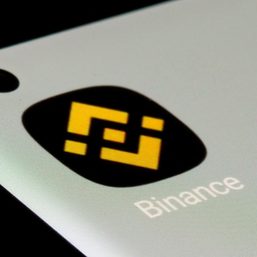
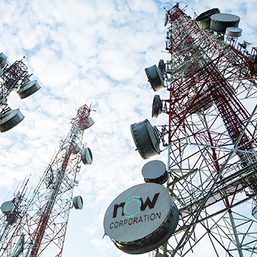
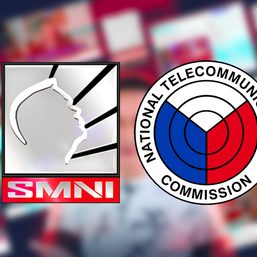
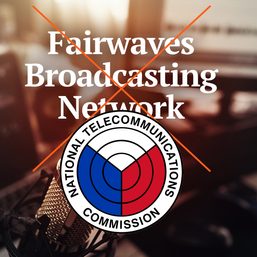
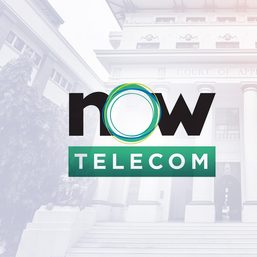
There are no comments yet. Add your comment to start the conversation.